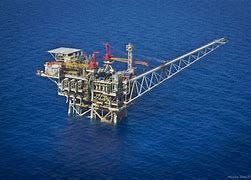[There seems to have been a little spike in subscribers recently – many Sixth Form students, I think. Welcome to all.
Like most, I am appalled at the above conflict. I won’t write about the actual events – I would probably get into trouble if I did. In April this year I wrote on this Substack about the oil and gas developments in the eastern Mediterranean. Here’s an update that is not being mentioned.]
Last week (10 October), Israel ordered the US TNC Chevron to shut down the Tamar gas field, about 50 miles from its coast, in response to security concerns following the assault by Hamas. The Tamar field has an output of more than 10 billion cubic metres in 2022 (for comparison, the newly declared Rosebank oil field to the west of Shetland, the UK’s largest untapped deposit, is not expected to produce 1 billion cubic metres a year). Much of the Tamar gas is exported to Egypt, where it is converted into liquefied natural gas (LNG) and shipped on to Europe. Egypt exported 8.9 billion cubic metres of LNG in 2022 – enough to supply a country such as Austria for one year.
Oil price rises might be dampened if other countries decide to increase production, but gas supplies are more precarious. A third of the world’s LNG, mainly from Qatar, passes through the Strait of Hormuz, which narrows to a channel not much larger than the English Channel between Dover to Calais, along the Iranian coast. The Iranian navy has seized or harassed ships in the strait in recent years, and long-range rocket launchers have been seen stationed on Iran’s islands. Iran has the power to make the Strait too dangerous for commercial shipping, and to close off the world’s most important energy corridor.
The effect of doing so would be great because Western economies have spent a year coping with inflation induced partly by Russia’s war on Ukraine, which forced people to endure higher prices and more expensive debt (especially mortgages) imposed by central banks to contain inflation. Two of the UK’s fundamental energy weaknesses – our reliance on gas, our poorly insulated homes – have not been fixed. It would not take much for a terrible situation in the Middle East to bring a bitter winter to our homes and to the British economy.



